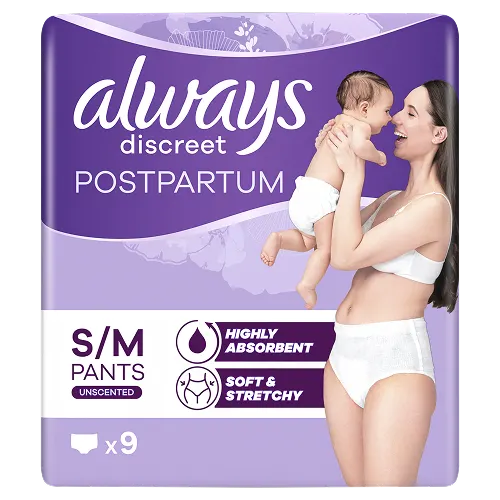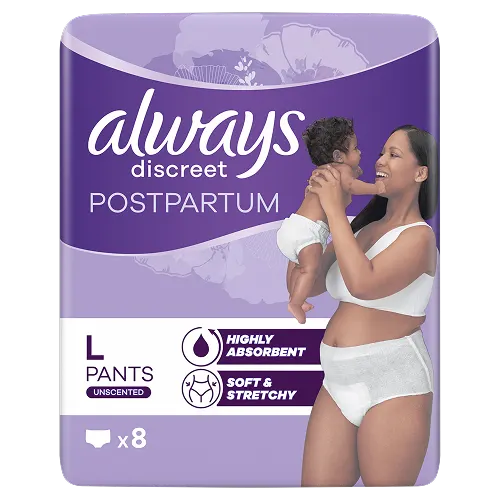
So many new experiences and challenges come with a new baby! Here’s one that many mums face but few talk about: Bladder sensitivity. Find out why incontinence after childbirth happens and how you can manage it so your focus is exactly where it should be – on your new little one.
What causes incontinence after pregnancy?
During labour, your birth canal stretches to let your newborn through. As it stretches, your pelvic floor muscles stretch out too. This can weaken your pelvic floor, which affects your sensitive bladder and can cause incontinence after pregnancy. If you already have a sensitive bladder, pregnancy may worsen your symptoms.
Here are some factors that may also add to your risk of developing pregnancy-related urinary incontinence:
-
Delivering a large baby
-
Experiencing a long labour or a difficult vaginal delivery
Did you have a caesarean section? Experts say you may still experience a sensitive bladder and pregnancy incontinence because simply carrying your baby through pregnancy can weaken your pelvic muscles.
Symptoms of post-pregnancy incontinence
If you have weak pelvic floor muscles, you may experience urine leaks when you cough, sneeze, lift, laugh or do exercise and you may feel an urgent need to empty your bladder more frequently. Other symptoms of incontinence after childbirth are waking up at night frequently to use the toilet or experiencing some leaks as you sleep.
What can I do about weak pelvic floor muscles?
Pregnancy incontinence and poor bladder control just after giving birth will often improve in the first six months as your body heals. Regular pelvic floor muscle training will help get the strength back and reduce the symptoms of incontinence after childbirth.
Also, remember that any 'pushing down' action in the first weeks after labour may stress or further stretch your pelvic floor. Protect those muscles by following these tips to aid incontinence after pregnancy:
-
Squeeze, lift and hold your pelvic floor muscles before you sneeze, cough, blow your nose or lift an object
-
Cross your legs and squeeze tightly together before coughing or sneezing
-
Do not lift heavy loads
-
Avoid exercises that make your pelvic area feel strained
If your bladder control and pregnancy incontinence doesn’t improve after six months, talk to your doctor. He or she can help try other treatment options or explore other possible causes of the urinary incontinence you’re experiencing.
Try wearing products designed for bladder leaks such as Always Discreet liners, pads, and underwear to protect against incontinence. They absorb liquids and odours within seconds, to help you stay comfortable. Plus, they come in different sizes and absorbencies to meet a wide range of protection needs.






